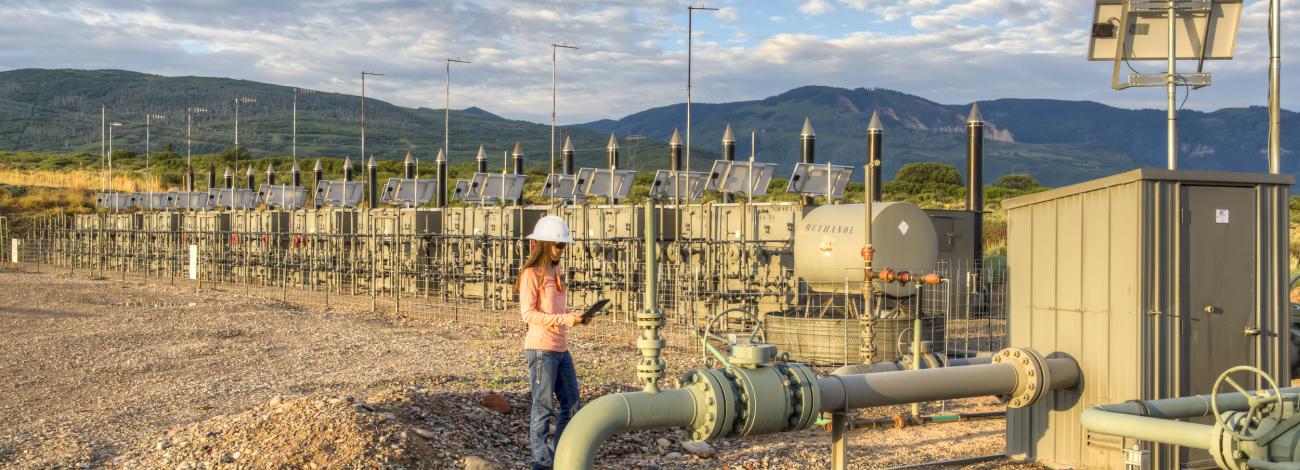
Onshore Oil and Gas Leasing Rule
The BLM has modernized its management of oil and gas leasing on public lands with a final rule that minimizes resource conflicts between fossil fuel development and other resources on BLM-managed public lands and subsurface mineral estate. By focusing oil and gas leasing in areas with existing infrastructure and high oil and gas potential, these regulations help to protect critical wildlife habitat, cultural resources, and recreational values, while ensuring a fair return for American taxpayers.
BLM finalized the Fluid Mineral Leases and Leasing Process Rule —also known as the Onshore Oil and Gas Leasing Rule—in April 2024, representing the first comprehensive update to federal onshore oil and gas leasing regulations in nearly four decades. As a result of this needed modernization, the BLM will continue to meet America’s energy needs while leading the way in sustainability as the agency works to manage public lands in a balanced, responsible way.
Modernizing a world-class oil and gas leasing program
This rule reinforces the BLM’s leadership role in energy development by:
- ensuring responsible leasing and diligent development to minimize conflicts with other resources while ensuring the BLM can continue to manage public lands for multiple uses;
- implementing key fiscal reforms, including updating royalty rates, rental rates, and minimum bids on BLM-managed public lands; and
- modernizing bonding requirements for leasing, development, and production to ensure taxpayers do not bear the cost of orphaned wells on public lands.
Overall, this means the Bureau can focus oil and gas leasing in areas with existing infrastructure and high oil and gas potential. This alleviates development pressure on areas with sensitive wildlife habitat, cultural resources, high recreational usage, or other special resources and values.
With changes to royalties, rentals, and fees, the final rule ensures that the American public receives a fair return from authorized oil and gas activities on public lands. It also helps protect taxpayer interests by increasing bonding requirements for the first time in six decades so that taxpayers don’t bear the cost of orphaned and abandoned wells on public lands.
This rule also helps to ensure the protection and proper stewardship of public lands, including potential climate and other impacts associated with fossil fuel activities. As the Administration prioritizes a transition to a clean-energy economy, authorized oil and gas leasing remain a major part of the BLM's multiple-use and sustained yield mandate.
The rule is responsive to Congressional direction by codifying fiscal provisions in the Inflation Reduction Act and the Bipartisan Infrastructure Law. The rule also implements recommendations from the Department of the Interior’s Report on the Federal Oil and Gas Leasing Program.
Effective date
The final Fluid Mineral Leases and Leasing Process Rule went into effect on June 22, 2024. The BLM is phasing in the new minimum bonding requirements to allow ample time for operators to adjust. The final rule requires operators to:
- replace all nationwide or unit operator bonds within one year of the effective date of the final rule;
- meet or exceed the new statewide minimum bond amount within two years of the effective date of the final rule; and
- meet or exceed the new individual lease minimum bond amount within three years of the effective date of the final rule.
September 2024 Webinar
On September 4, 2024, the BLM provided an Oil and Gas Rules Overview webinar. If you missed the webinar, please review the slide deck, found below:
Sept 4 Webinar Slide Deck
The BLM looks forward to posting the video after ensuring the video is Section 508 compliant.
